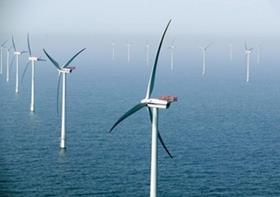Chair of the energy and climate change committee expresses concern that investors will abandon the green energy sector

The government’s review of green levies on energy bills is “damaging policy credibility” and “seriously undermining” investor confidence, the chair of the energy and climate change committee Robert Smith, has said.
The warning came as pressure continues to mount on David Cameron to scrap plans to “roll back” green levies on energy bills as 140 landlords and local authorities write to him saying projects funded by green leives are being shelved.
The government is currently undertaking a review of green levies, in an attempt to bring down the cost of energy bills.
But confusion has reigned about what exactly is included within the review. While the Department of Energy and Climate Change has said a number of policies that support renewable energy projects such as feed-in-tariffs, the renewables obligation and contracts for difference are not included in the review, energy minister Michael Fallon has said everything is included.
In a letter to the prime minister, Smith, a Liberal Democrat MP, said: “If the government is to unlock the £110bn of investment needed for new electricity generation and transmission by 2020 industry confidence is vital.”
He said the government’s contract for difference system, where firms are paid a fixed price for the electricity from newly built power stations, was a “cornerstone” of government energy policy and should not be undermined.
He said: “Backtracking on these legally binding contracts will damage policy credibility, seriously undermine investor confidence and could increase the cost of capital for new energy investments – thus pushing up energy bills.”
Smith backed keeping the Energy Companies Obligation, but said funding for it should come from general taxation rather than a charge on energy bills.
Meanwhile, another letter to David Cameron signed by 140 landlords and local authorities, organised by consultant Sustainable Homes, said the uncertainty over ECO was “already having a damaging impact as social landlords rethink their plans”.
It added: “Many of our members are considering delaying or disbanding much needed investment. This will have perverse impact, increasing fuel bills and reducing employment.”
It said he should “retain and improve” ECO.


























No comments yet